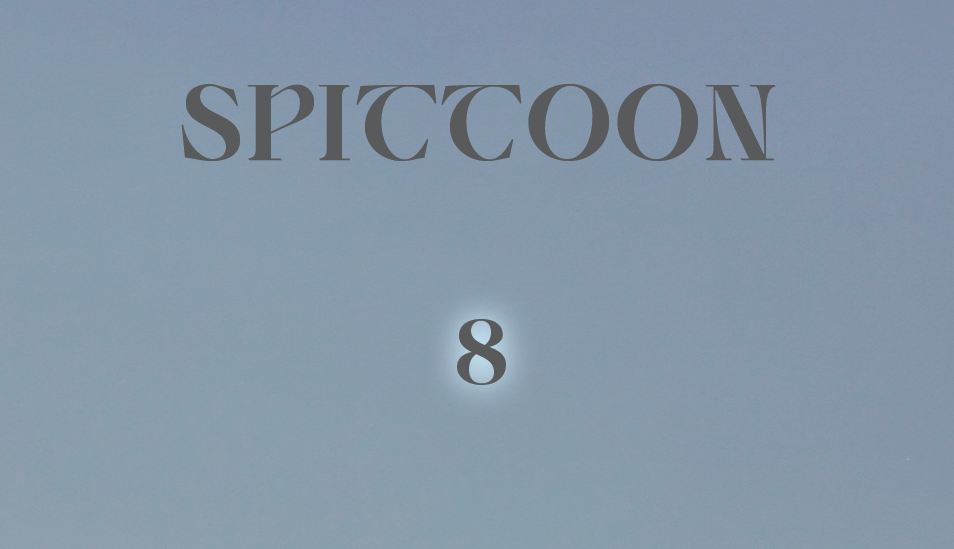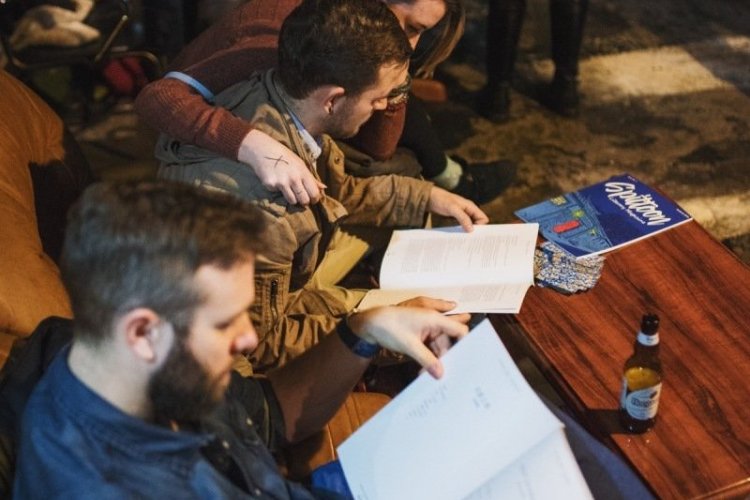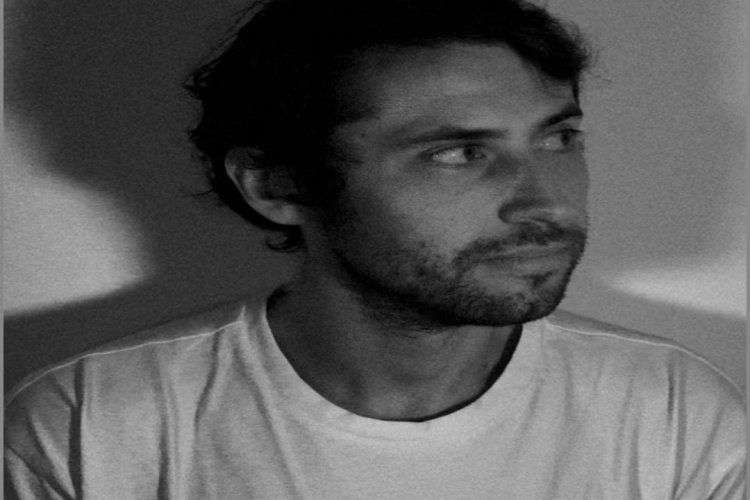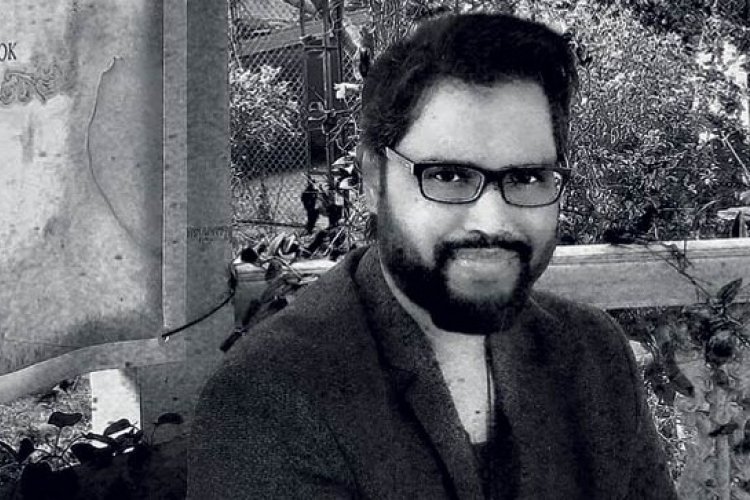Spittoon Turns Eight Plus Eighth Issue of Spittoon Literary Magazine Launched
It has been a long time coming but Spittoon Literary Magazine Issue Eight is here. Plus this year the magazine launch has been perfectly coordinated with Spittoon’s eighth-anniversary celebrations so you can enjoy double the fun. Two lucky number eights must be an auspicious sign after all, and given the last few years in China we’ll take all the luck we can get!
Spittoon was founded in Beijing in 2015 by Beijing expat Matthew Byrne, and Spittoon Literary Magazine (SLM) was then launched in November 2016. The SLM Issue Eight launch party will be taking place this Saturday (May 27) at 3pm at Chill Bar immediately followed by Spit-Tunes at 8pm at nugget to celebrate Spittoon’s eighth birthday.
Ahead of the launch, I caught up with co-editors Xiao Yue Shan and Zuo Fei to find out what we can expect from SLM Issue Eight and the celebrations on Saturday.
You’re going to launch the eighth issue of the magazine, is there any theme or something unique about this issue?
Zuo Fei: I can’t say there’s a theme for every issue, but for Issue Eight, we wanted to showcase something in particular: firstly, a couple of deceased authors, which is something we’ve never done before and secondly, something cool like sci-fi or fantasy pieces.
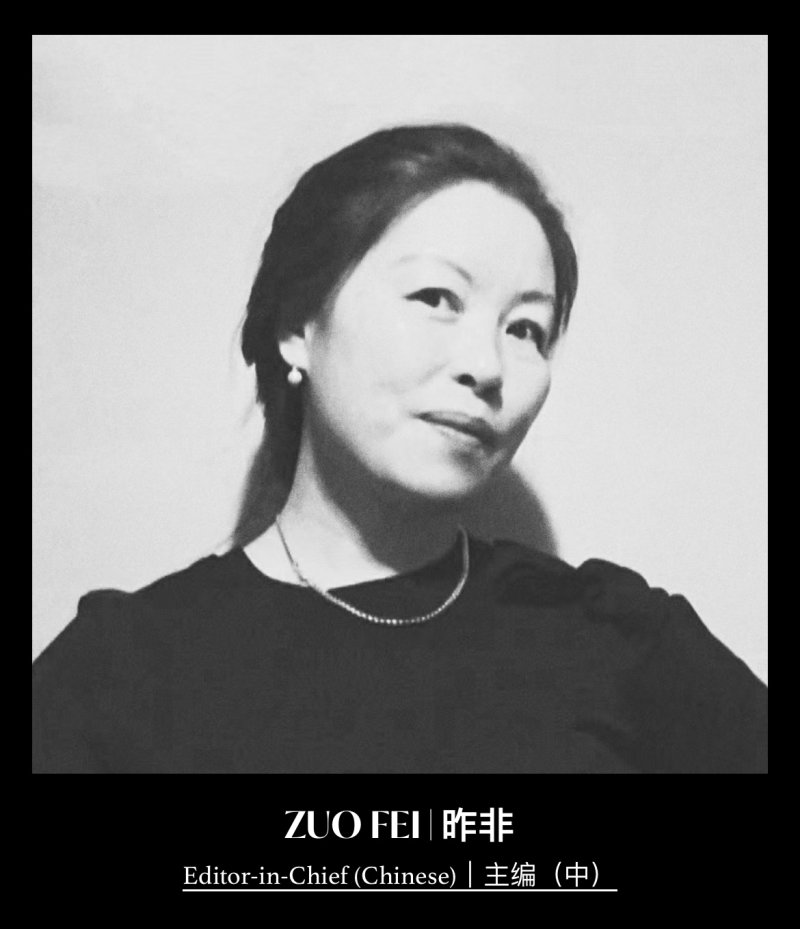
There wasn’t a magazine launch last year due to Covid, how do you think this has affected the eighth issue of the magazine?
Zuo Fei: Well, it might have given us more time to think about what content we wanted to produce for the readers. We’re always incredibly busy but try to manage, we’re a small team – perhaps too small for such a Herculean task – this time we’re featuring eleven authors in total, and some of the works were as long as 10,000 words. We focus on new voices and boundary-pushing talents, but we also take well-established ones as well, and trying to decide on who and what to feature takes forever! The young and beautifully talented writers we translate have constantly stunned the literary community, but there are so many new talents, it’s a crowded field really. At the same time, we keep watching over seasoned writers, hoping to pick something that not just pleases the readers but also ourselves.

Can you tell us about some of the featured writers in the eighth issue?
Zuo Fei: The two deceased authors we feature are actually heavyweights in China, in verse and prose respectively, who have exerted tremendous influence. They are Zhang Zao (张枣) and Wei An (苇岸). The works represent some core values in Chinese culture, especially those cherished for thousands of years, for Zhang, it’s culturally-coded images and all the allusions tracing back to ancient China, and for Wei, the 24 solar terms set in the Chinese lunar calendar. As to the sci-fi pieces, we solicited works from the Hugo winner Hao Jingfang (郝景芳) from Beijing, and the highly acclaimed Yi Geyan (伊格言) from Taiwan. By coincidence, their works deal with existential issues, not from the far future, but the near future, and even the near, near future. You can see how this shows our concerns -- the past set against the future, and how the two extremes are closely related now.
It seems we like the fictional better than the reality. For instance, the other three fiction writers included are Shen Dacheng (沈大成), Li Tang (李唐), and Chen Chuncheng (陈春成). Their works are not realistic, but a provocative surrealism that mirrors reality. It is said that reality is what we learn from imagination, I can’t agree more. From what we experienced, say, in the past few years when the pandemic was going on, we knew reality is more than real, and even the best fiction writer cannot picture the absurdity or sublimity of a real life that’s beyond imagination. That’s why literature counts.
As to the poets included, we have experienced writers like Zhu Zhu (朱朱) and Wang Ao (王敖), and we also have Chun Shu (春树) and Fan Xue (范雪) on the list who are different in style, but represent poetesses that are like priestesses, I mean, that encode an oracle reflecting on today’s China.
Xiao Yue Shan: Inside the pages of Volume 8, you will find poems from 张枣 Zhang Zao, a renowned, revolutionary, and formally inventive poet who believed that “poetry must transform one’s self and life.” We’ve also included excerpts from a true visionary, 苇岸 Wei An—known as the Chinese Thoreau for his intimate writings of solitude and witness to nature. Though these writers have left us, we feel that their work continually resounds in the calls we feel so urgently today: to give our attention to the natural world, and to constantly interrogate the limits of language and what it allows us to say.
There are also heartrending and innovative stories from two of the heavy-hitters of Chinese-language sci-fi: the pioneering 郝景芳 Hao Jingfang and Taiwanese master 伊格言, who exemplify the unique ways their genre can speak to both the mysteries of the human mind and the intricacies of our worldly relationships. Also, we are proud and delighted to publish the final chapters of Li Tang 李唐’s magical “The Town at the End of the World”, a story we’ve loved for the past two volumes; all the while, its subtle, delicate beauty has never waned.
The two other fiction writers we’ve chosen to feature also edify the surreal paths that thinking takes to get to reality. 沈大成 Shen Dacheng’s seemingly simple tale of a pet-owner relationship gone sour reveals the innate deceptions, illusions, and conceits in both love and hatred, while 陈春成 Chen Chuncheng’s surreal tale of a cloud snipper uses absurdities to investigate the driving force of our passions.
Of the contemporary poets, we’ve gathered the intricate, metaphysical poems of 朱朱 Zhu Zhu; the kaleidoscopic, strikingly visual verse of 范雪 Fan Xue; the intimate and almost secret work of 春树 Chun Shu; and the mythical, understatedly epic texts of 王敖 Wang Ao. All are formidable in their own right, manifesting singular conceptions of what poetry is capable of, and representing the formidable capacities of language when it meets idea.
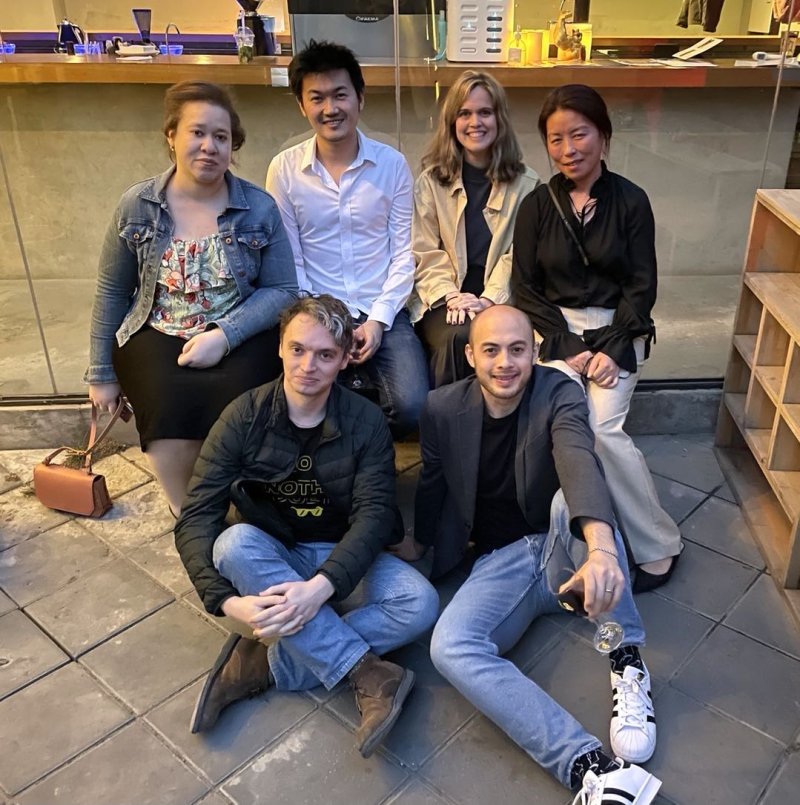
The translators play a very important role in the magazine, as a translator yourself what do you think is key to making a good translation?
Zuo Fei: It’s imperative to translate some authors, especially when they are important, and when there have been very few satisfactory translations of their great works. For some authors, their works are difficult to translate simply because they are culturally coded, either lexical or semantic, and as translators, we have to decode them without losing their unique style, or by creating a style that we believe is equivalent in the English language. It seems to me that the world is a better place to live in simply because we translators are eternally making contributions to the Tower of Babel.

Can you tell us a bit about the cover art for the eighth issue?
Zuo Fei: The artist Guo Jing (郭警)was born in 1985. He graduated from the Central Academy of Fine Arts in 2009 and now he lives in Beijing. What we usually do is explore a great variety of artists and choose one from them. What interests us is usually young artists whose works are critical and allegorical at the same time. For the last issue, we scouted a young artist, who turned out to be living in Beijing – it’s a small world. This time, well, again, the artist we chose happens to live in the same town. Here’s what happened. We called the curator who had hosted an exhibit of Guo Jing and by chance, the owner of the gallery, RedGate, is a foreigner who’s been in China for three decades and already knew about Spittoon. And it was via him we contacted Guo, and he’s one of the many artists affiliated under an agent called Artand, one of the world’s leading community and art trading platforms for young artists. As usual, our art correspondent Deva Eveland did an interview with the artist.
Xiao Yue Shan: We are so honored to feature the work of Beijing artist 郭警 Guo Jing, whose unnerving and oddly serene paintings hover on that precipice between real and unreal, subverting common scenes to reveal impactful truths about the nature of seeing. I loved “The Tomb of Poetry,” which graces our cover, immediately upon seeing it. Its shocking simplicity opens up a whole world of imaginings, and the same goes for every single one of his sublime pieces.

What’s happening for the launch, the event will be taking place at two venues, what can we expect?
Zuo Fei: As to the launch, it takes place at Chill Bar from 3pm onwards. We will show videos of our team that are not on the ground. Matthew Byrne, the director of Spittoon; Xiao Yue (Shelly) Shan, the editor-in-chief for English; and Simon Shieh, editor, and co-founder of SLM. Some translators, for instance, Dave Haysom, and Ana Padilla Fornieles, will speak, we’re lucky to have the support from our translators, though others like Stephen Neshef and Austin Woerner weren’t available.
Some hosts of our regular Spittoon events are going to read snippets from the magazine: Sean Toland from the Book Club; Ivan Stacy from Spittoon U; Amy Daml from Storytelling, and Abigail Weathers from the Poetry Workshop. I also invited a young professional to present a piece of Peking Opera on the day. Well, there might be other surprises set by Anthony Tao, the Beijing coordinator, but I don’t want to give away any spoilers though!
Since it’s also time to celebrate Spittoon’s birthday (I can’t believe we’ve been around through thick and thin for eight years), we’ll have the second part of the party at another venue, nugget from 8pm. There’ll be music and poetry performed by some Spittooners. May is a good time to celebrate since we’ve been working so hard to bring things out.
How do you see the role of Spittoon in deepening cultural and language exchanges, particularly between expats and Chinese?
Zuo Fei: I often compare Spittoon to the literary and arts groups in Paris in the glorious 1920s, what Hemingway referred to as “The Moveable Feast”, in bridging the gap between expats and Chinese in big cities -- Spittoon was started up in Beijing, but then expanded to other cities like Chengdu, Xi’an, and Shanghai. As China is getting more and more international, expats in town, either for work or life, can drop in on Spittoon anytime they like. Lots of Chinese are involved, too. They are those who studied/worked abroad before or/and are enthusiastic about literature and arts, or those who reach out to Spittoon for collaboration.
Spittoon is a nonprofit organization. It sustains itself through voluntary work. The leaders of Spittoon at various levels are cooperative, welcoming any idea that’s creative. They rely on the community for different resources. And Spittoon is inclusive and international. It attracts talents and cultivates creatives, who in return contribute to Spittoon.

What's your motivation behind joining this forum and what drives you to carry that forward?
Zuo Fei: Spittoon is the engine of inspiration. It is the right place for us artsy fartsy people. In terms of literature and arts, it pulls together a great variety of professionals, so that the like-minded can be motivated, become more productive and accomplish their missions. What’s more, it makes tedious work more interesting, your efforts pay off, and you’ll always be rewarded with care and support.
How can people get involved with Spittoon?
Zuo Fei: Spittoon is successful due to the mysterious spirit of shared values of professionalism, openness, universality, and the legacy of support as a natural community. If culture is scripture today, Spittoon is the roof under which we get together to deliver the common good.
Here’s the magazine’s website: spittoonlitmag.com. You’re welcome to follow Spittoon at www.spittooncollective.com. You can also subscribe to Spittoon’s handle on Twitter, and Instagram. And of course, you can find Spittoon on WeChat by searching the keyword “Spittoon”. Our regular events are held every Thursday evening at 8pm at Chill Bar.
The Beijing group holds regular events such as Book Club, Fiction Night, Storytelling, Poetry Night and Poetry Workshop. It also does other events such as a combination of poetry and music called Spit-Tunes, etc. Usually, the regular events are free and available at a lovely regular venue (previously Camera Stylo, but now Chill Bar) every Thursday evening, they are open to anyone who’s interested.
To purchase an advance copy of Spittoon Literary Magazine Issue Eight you can scan the QR code below:


The Spittoon Literary Magazine Issue Eight will take place on Saturday, May 27 at 3pm at Chill Bar and is free to attend.
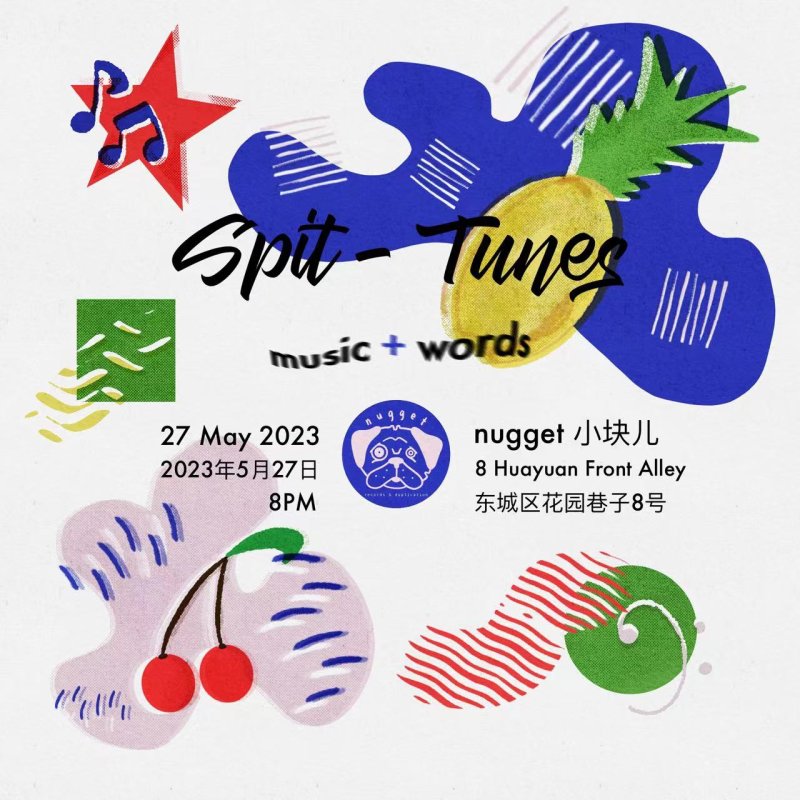
Spit-Tunes will be taking place on Saturday, May 27, at 8pm at nugget, and is free to attend.
Chill Bar
2 Andingmen Xidajie (50m west from southwest corner of Andingmen Qiao), Dongcheng District
东城区安定门西大街2号(安定门桥西南边往西走50米)
nugget
8 Andingmen Garden Front Alley, Dongcheng District
东城区安定么花园前巷8号
READ: Sipping Coffee with a View: Head to Polonio for a Good Cuppa in Baitasi
Images: courtesy of Spittoon, Ana Padilla Fornieles

